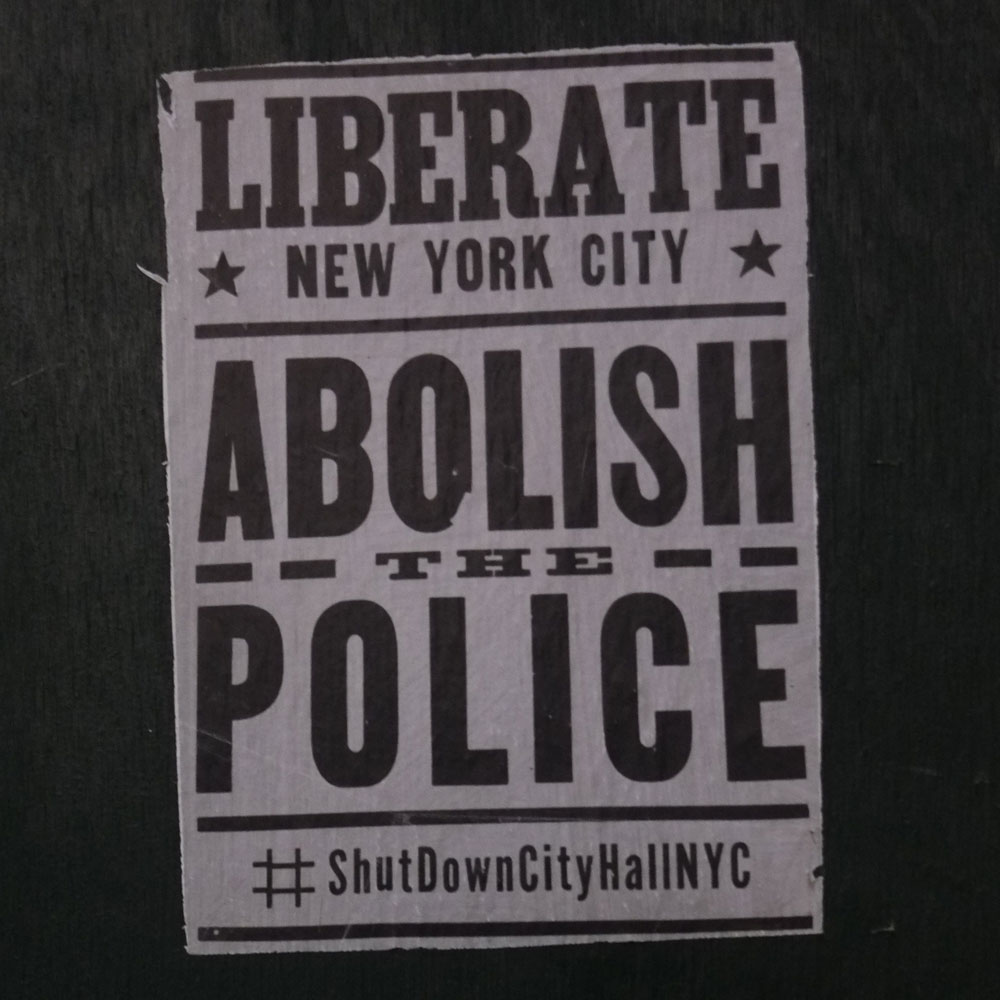
June 1, 2020; Democracy Now! and New York Times, “Opinion”
The current wave of protests against police brutality and systemic racism, centered around the police killing of George Floyd, reveal the groundswell of support of a racial justice movement in the US. And, as a part of that and in response not only to continuing police violence, and generations of racist law enforcement, there are increasing calls to defund the police.
This advances the issue beyond the standard government initiatives of diversity, training, and cameras in police departments. In fact, the Minneapolis Police Department, whose officer murdered George Floyd on May 25th, had held trainings on implicit bias and de-escalation. It had invested in body cameras and had an early intervention system to identify harmful officers. These strategies, while widely commended, didn’t stop one of their own from killing an unarmed Black man, with three others on hand to assist and observe the murder.
“The focus on training, diversity, and technology like body cameras shifts focus away from the root cause of police violence and instead gives the police more power and resources,” write African American Studies and Sociology PhD candidate Philip V. McHarris and Movement for Black Lives strategist Thenjiwe McHarris in an op-ed for the New York Times. “The problem is that the entire criminal justice system gives police officers the power and opportunity to systematically harass and kill with impunity.”
The Movement for Black Lives has among its policy platforms a call to divest from policing and reinvest in healthcare, housing, and education in Black communities. Its policy includes the idea that “more officers, guns, jails and prisons are not a solution to longstanding problems of racial disparities, injustice and police violence.”
This defunding would involve work at the local, state, and federal level to move money away from policing and the military toward other areas of government that have long been drained of resources.
This shift from funding police reforms to funding government services is crucial, agrees Princeton African American Studies Professor Keeanga-Yamahtta Taylor in an interview with Democracy Now. Radical reinvestment is deeply necessary due to funding choices over time that left cities dependent on the police for managing crises due to poverty and unemployment.
Sign up for our free newsletters
Subscribe to NPQ's newsletters to have our top stories delivered directly to your inbox.
By signing up, you agree to our privacy policy and terms of use, and to receive messages from NPQ and our partners.
“Civic and public sector infrastructure…all of the things that make a city function—those have been systematically defunded, increasingly privatized,” says Taylor. “And that is why in city after city, as other public institutions take financial hits and are defunded, it’s the police that always get to maintain their budgets.”
Taylor points to cities like Los Angeles, Chicago, New York, and Philadelphia, where the police force receives a disproportionate amount of the city budget and annual increases.
Now is the time of year when many cities are finalizing and approving their budgets for the next fiscal year. It’s also a time in which community groups are pushing back against growing police departments and shrinking social services.
In Los Angeles, the mayor’s proposed FY 2021 budget gives the police $1,857,300,549, which is more than the funds given to the fire department, department of transportation, the housing and community investment agency, bureau of street services, and office of emergency management in that city combined.
In response, a group of activists in the city created a “People’s Budget” that distributes funding differently, significantly reducing the police budget while increasing the budget for the categories of addressing homelessness and public health. The budget was created by gathering opinions from over 2,000 Los Angeles residents online. A statement accompanying the budget reads:
When deciding how to allocate resources, the question becomes who and what do we value most: Is it investing in our children, providing shelter, food, and medical care for our most vulnerable populations? Is it helping our city withstand a global pandemic? Or is it investing in a police state that won’t make our communities any safer, and will actually harm those who need help the most, especially now?
Now’s the time for local governments to take seriously the demands from grassroots groups that are calling to defund the police. Reducing reliance on the police will both improve the safety of Black Americans and also encourage creative solutions to meet community safety needs.—Emily Weyrauch










